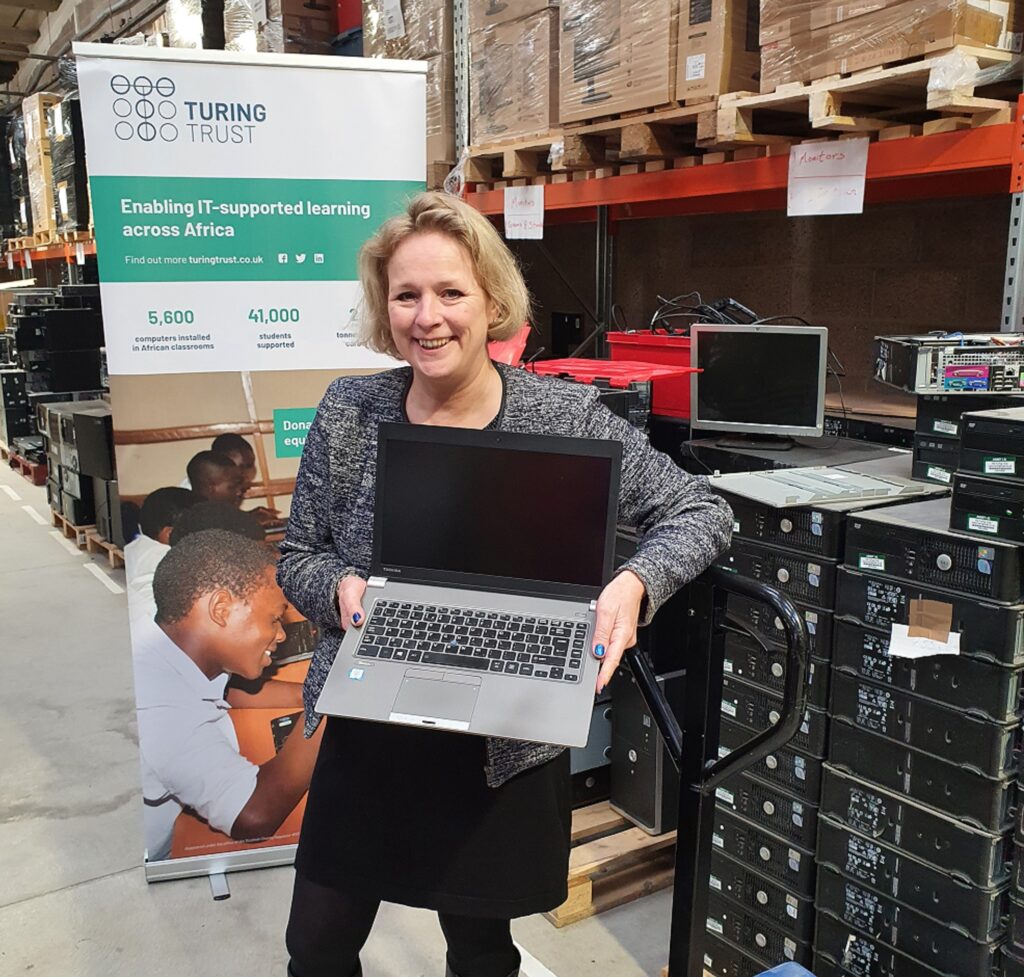Charity is refurbishing old computers donated by the public to supply schools
An Edinburgh charity run by the family of legendary codebreaker Alan Turing has described the work it does in transforming lives in Africa.
UK government minister Vicky Ford met with the computer science pioneer’s nephew Dermot and his son James to discuss how their charity The Turing Trust is refurbishing old computers donated by the public to supply schools in Malawi.
The Turing Trust has used a £50,000 Small Charities Fund grant from the Foreign, Commonwealth and Development Office (FCDO) to help 8,900 Malawian schoolgirls learn how to use computers.
Ford, minister for Africa, said: “The UK government is proud to help The Turing Trust build on the outstanding legacy of Alan Turing, by giving thousands of children in Malawi their first access to computer technology.
“I’ve been delighted to meet today with the family of the icon who played such a significant role in sparking the digital revolution, to find out how they are now ensuring schools in some of the world’s poorest communities across Malawi are not left behind.
“Computer skills are a crucial tool in giving vulnerable children a ladder out of poverty in the 21st century and this project is the perfect example of UK aid supporting a Scottish charity to be a force for good in the world.
“Returning to Scotland, following the success of Cop26 in Glasgow, it is inspiring to see first-hand how The Turing Trust is recycling technology to give it an important new purpose in Malawian schools.”
The Turing Trust has so far refurbished over 9,200 PCs, enabling over 81,000 students across Africa to gain a digital education since it launched in 2015.

CEO James Turing said: “We’ve been thrilled to welcome Minister Ford to our HQ in Edinburgh to discuss how UK aid has been helping to support our work in Malawi.
“My great uncle is often described as the father of modern computer science, so we are proud to be carrying on that legacy by helping some of the world poorest children get access to computers in schools.
“Our FCDO funded project in Malawi has enabled us to save 807 British computers from being scrapped, installing them in 36 Malawian schools.
“This has given over 8,900 Malawian schoolgirls the life-changing opportunity to learn digital skills for the first time, opening doors to university, as well as a wide array of career paths.
“Our deepest thanks go out to the households and businesses who have donated their unwanted IT equipment. While they might not meet the demands for the typical British office or home setting, once we wipe and rebuild them, they are an invaluable resource for helping kids start their digital journey.”
The Turing Trust’s work is helping address a particular lack of ICT access to schoolgirls in Malawi, which ranked 149 out of 162 countries in a United Nations Gender Inequality Index study in 2018.
Omega Gondwe, 18, from Blantyre, in southern Malawi, is one of the beneficiaries of The Turing Trust’s work and now attends Malawi University of Business and Applied Sciences.
She said: “I was in form three and had never used a computer in my life when our school received its delivery.
“It is hard for children to get access to computers, especially girls because there was an idea that only guys can do IT things.
“Computers have opened up the world to me and the ICT skills have helped me go to university where I am pursuing a career in IT. I get to prove IT skills are not just for boys.
“I feel I can be a part of growing Malawi because as a country we are now finding our feet digitally.”







